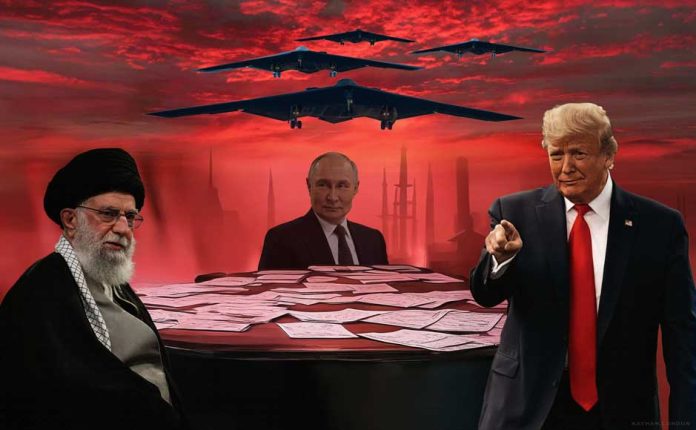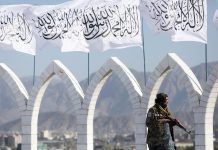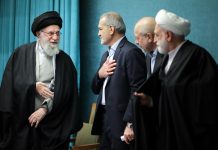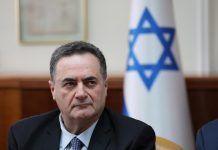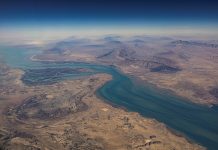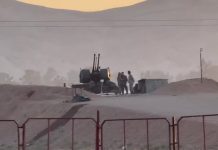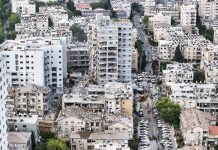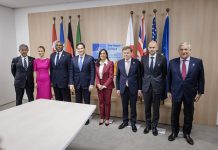By Ahmad Rafat
President Donald Trump made a surprise announcement on Monday April 7: that the United States and the Islamic Republic of Iran are holding direct talks and that a meeting at the highest level is planned on Saturday. He declined to say where the talks are taking place.
On April 8, Foreign Minister Ali Araghchi issued the following post on the social media platform X:
“Iran and the United States will meet in Oman on Saturday for indirect high-level talks. This is as much an opportunity as it is a test. The ball is in America’s court.”
The Nour News Agency, which is close to the Iranian National Security Council, described Trump’s statement as a “psychological operation to influence domestic and international public opinion”.
The reality is that the Islamic Republic of Iran and the United States are simultaneously discussing war and diplomacy. Each side insists that all options remain on the table.
It is still unclear which third-party nation is mediating these covert discussions. Several countries could play this role by bridging the gap between U.S. President Donald Trump and Iran’s Supreme Leader Ali Khamenei.
Trump Says US, Iran Set for Direct Nuclear Talks; Tehran Says They Will Be Indirect
Iran has suggested Oman as a potential mediator. Saudi Arabia, which has increasingly taken on a significant diplomatic role globally, has hosted recent talks between U.S. officials and representatives from Russia and Ukraine and is expected to facilitate the first meeting between Russian President Vladimir Putin and President Trump.
Qatar, known for its close ties with both nations and its long history in diplomacy, particularly in brokering talks between the U.S. and the Taliban or Israel and Hamas, is another potential candidate.
Moscow, which holds considerable influence in the Islamic Republic, is expected to play a crucial role in these negotiations.
Sergey Lavrov, Russia’s foreign minister, highlighted Moscow’s mediation efforts at Washington’s invitation during a joint press conference with his Chinese counterpart, Wang Yi.
Russia’s involvement in talks with the U.S. was also a key focus of a recent meeting between Kazem Jalali, the Islamic Republic’s ambassador to Moscow, and Sergei Ryabkov, Russia’s Deputy Foreign Minister.
Ryabkov concluded the meeting by stating: “The Iranian nuclear case and the country’s role in the Middle East will be on the agenda during the upcoming meeting between the leaders of Russia and the U.S.”
ANALYSIS: Islamic Republic Is Threatened By Internal Divisions, Risk of War
Russia cannot be labeled a neutral mediator. Its influence within the Iranian government, particularly in Khamenei’s office and the Islamic Revolutionary Guard Corps (IRGC), is substantial, and has the potential to shape the Islamic Republic’s decisions.
Russia played a central role in the negotiations that resulted in the 2015 Joint Comprehensive Plan of Action (JCPOA), commonly known as the Iran nuclear deal.
During these talks, Mikhail Ulyanov, Russia’s representative to the International Atomic Energy Agency (IAEA) in Vienna, frequently briefed the media on updates, often taking over as a lead role instead of Iran’s then-foreign minister, Mohammad Javad Zarif.
It is difficult to imagine the Islamic Republic pursuing such critical negotiations with the U.S. without Moscow’s agreement and backing. Regardless of the mediator, these negotiations would be trilateral discussions involving Washington, Moscow, and Tehran.
While Trump frequently discusses negotiations with the Islamic Republic, and Khamenei recently referenced indirect talks with the U.S. in his speech at the end of Ramadan, Iranian President Massoud Pezeshkian has also signaled openness to such discussions.
However, there are growing reports from both sides suggesting preparations for potential war.
The Islamic Republic has warned regional countries that they would be targeted if the U.S. uses their bases to strike Iran’s nuclear facilities. In response, Saudi Arabia, Qatar, Kuwait, and Iraq have firmly stated that they will not permit their territory or airspace to be used for any attack on Iran.
Additionally, the Islamic Republic’s military forces have been on high alert since April 5, with the IRGC unveiling a new underground missile facility on March 25.
Brigadier-General Amir Ali Hajizadeh, commander of the IRGC’s Aerospace Force, told state television: “If we start unveiling a missile city every week from today, it will take us longer than two years to finish.”
In preparation for a potential conflict, the Islamic Republic’s state television is readying hours of war-related programming, and the semi-official Fars News Agency, linked to the IRGC, has even released an AI-generated video simulating an attack on the U.S. base in Diego Garcia, located in the Indian Ocean.
Diego Garcia is a British-controlled base where the U.S. has stationed bombers for operations in the Middle East for many years. This base played a key role in airstrikes against Saddam Hussein’s regime in Iraq in 1991, against the Taliban in Afghanistan in 2021, and in recent attacks on the Houthis in Yemen.
More recently, several stealthy B-2 Spirit bombers have been deployed there. Meanwhile, the USS Carl Vinson aircraft carrier, accompanied by its assault group, travels across the Indian Ocean toward the Persian Gulf. These U.S. military movements coincide with Iran’s claims of being prepared to counter military actions.
These developments are happening alongside ongoing diplomatic efforts.
Recent statements by Ali Larijani, an advisor to Khamenei, suggest that Iran would be compelled to pursue nuclear weapons production if the U.S. or Israel were to strike Iran under the guise of its nuclear program. This rhetoric should be understood as a threat aimed at deterring war — one that Iran knows it would lose before it even begins.
Khamenei is at a critical juncture, facing a dilemma, a lose-lose situation with no easy way out.
Agreeing to negotiate with the U.S. and accepting Trump’s demands, which extend beyond just abandoning the nuclear program to include altering Iran’s regional policies and even its military strategies, would push Tehran into a highly precarious position from which it would be hard to recover.
The regime will do everything it can to adopt a negotiation strategy that will buy it time and delay military action.

